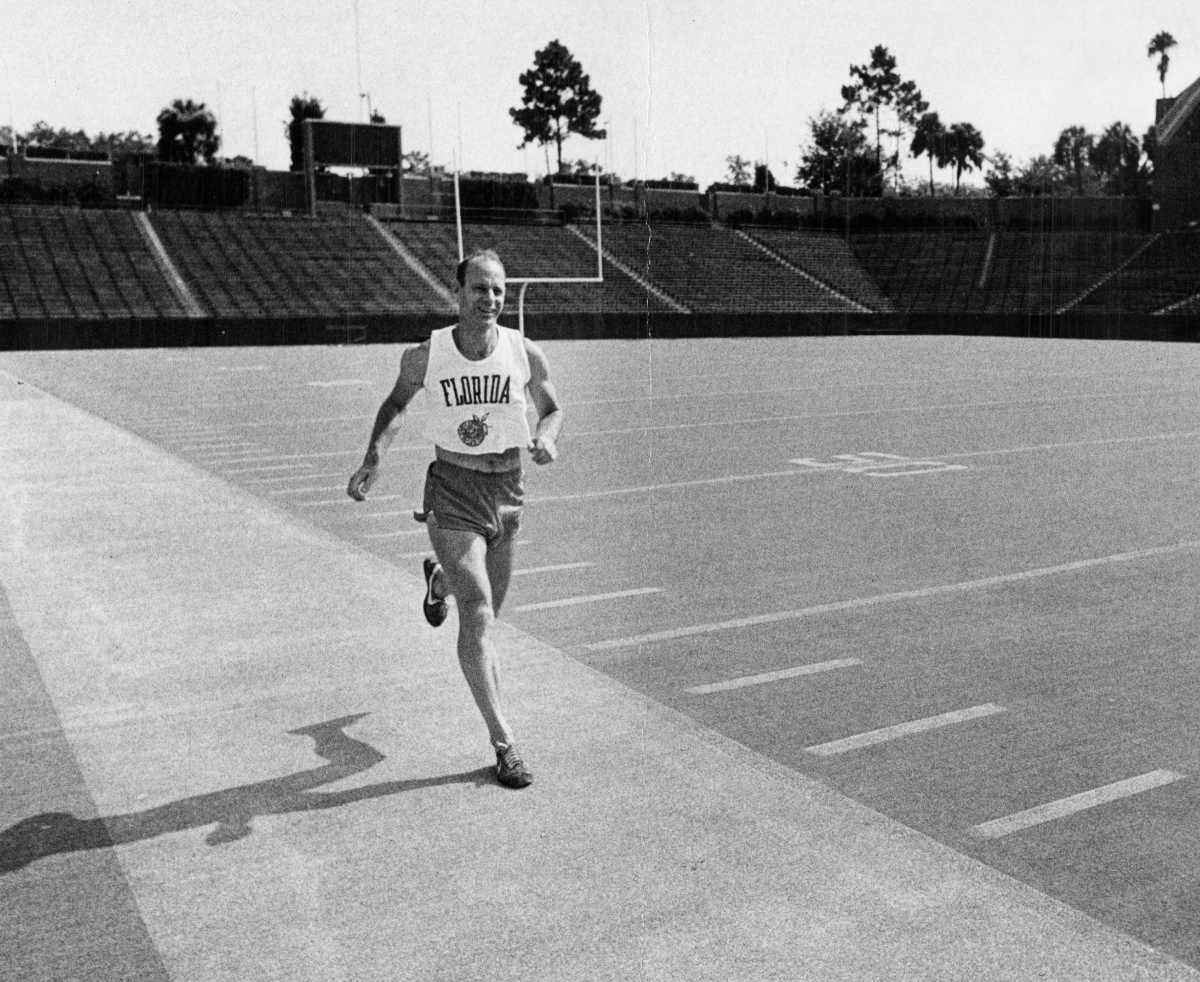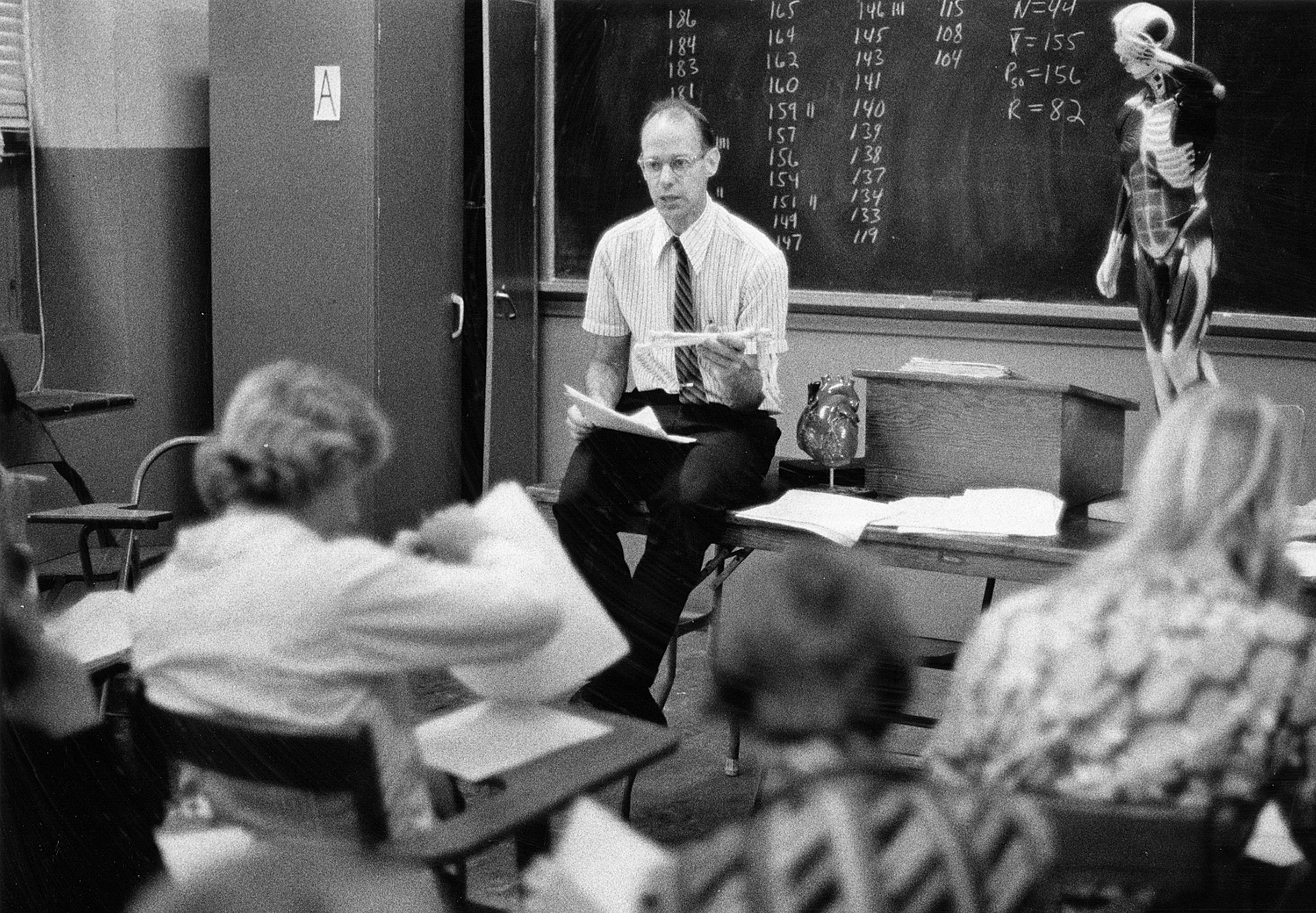The ultimate machine

Carl Wieland interviews human anatomist Dr David Kaufmann
David Kaufmann gained his Ph.D. in anatomy (following an M.A. in physical education) from the University of Iowa. He is the author or co-author of several textbooks and manuals in anatomy and sports/exercise science. He has also published literally dozens of research papers in peer-reviewed journals.
Prior to his retirement in 1999, he was Professor of Exercise Science at the University of Florida in Gainesville, where he also taught human anatomy, kinesiology, exercise physiology and biomechanics.
Right from the beginning of our interactions for this article, I had many glimpses of Dr David Kaufmann’s sparkling sense of fun—not like my recollections of my own dour anatomy professor. His emails, for instance, routinely came with quips appended that brought at least a smile, more often a loud laugh.

Asked if he had any photos which might help illustrate the article, he sent one in with a tongue-in-cheek suggestion for the caption: ‘Dr Kaufmann and two of his biggest fans’. (The ‘fans’ were literally that—devices for circulating air.)
But David Kaufmann is deadly serious about the importance of the creation/evolution issue which, he says, ‘deals with the most important questions in life that every person must answer, such as, ‘Where do I come from?’ Evolution’s answer, he points out, is ultimately that ‘unthinking molecules jumped together by chance’. Biblical creation, he says, implies purpose—to love and serve Christ and our fellow man.
‘What real purpose is there in a consistent evolutionary belief system, other than to live, have “fun” and die? After all, if we just evolved from some primordial slime, and the Bible is therefore wrong about something as basic as where we came from, what sense does it make to expect people to live by the moral requirements of the Bible? What point is there to the Ten Commandments, or the Sermon on the Mount? All moral values can only be relative, not absolute.’
Evolution, he says, also gives a false answer to one of the most important questions of all—namely, what happens at death. ‘The believer can look forward to spiritual life in heaven with Christ’, he says, ‘whereas the consistent evolutionary answer is that there is no afterlife or soul; we simply become dust.’
In the 28 years in which Dr Kaufmann was teaching anatomy to medical students, he would sometimes be asked about certain structures or body parts. In replying, he would almost always seek to acknowledge the ‘Divine Designer’. However, his was a lone ‘voice in the wilderness’. Most other professors were either believers in molecules-to-man evolution, or were indifferent to the issue.
He says, ‘How any human biologist could believe that the human body came about due to unthinking molecules arranging themselves over an unobserved long period of time really blows my mind.’
The ultimate machine
He calls the human body ‘the ultimate machine’. ‘People have invented all kinds of efficient machines, like the automobile’, he says, ‘but compared to this the human body is “ultra superior”.
‘It adapts to stress; it thrives and survives’, he says. ‘It can even heal itself within certain limits. Certain cells regenerate; wounds and fractures naturally heal, and the immune system can often overcome infections. And if you use this machine, it develops; if not, it shrinks and loses its functions. Whenever we use an auto, it wears out a little, and finally malfunctions. But physical exercise causes humans to perform better at work or sports. And I haven’t even begun to mention the body’s amazing feats of data processing, analysis, synthesis, reasoning, inventing and creating.’
He summarized it as follows:
‘The human body is a carbon-based, chemically fueled, force-liquid-and-air cooled, bipedal, communicative, photochromatic, binocular, cellularly self-replicating, self-diagnostic, self-repairing tissuewise, multidexterous, continuously adaptive, computer-controlled, biodegradable exhaust system machine, capable of short and long-term memory with conceptual retrieval and integration, and precise decision-making and creativity—truly the “Ultimate Machine”.
‘We know that to plan and construct something vastly inferior, like an automobile’, says Dr Kaufmann, ‘it takes an intelligent human designer. An unbiased observer would have great difficulty denying the rational conclusion that the Ultimate Designer made the Ultimate Machine, the human body!’

While teaching students knowledge and the ability to reason, Dr Kaufmann says he also tried to use his academic discipline ‘to help at least some of the students see real answers for their personal lives.’ Most students knew he was a Bible-believing professor; sometimes they would come into his office to discuss academic or personal problems. ‘On rare occasions’, he says, ‘I would diplomatically and carefully quote some Scriptures within my lectures.’
One of the things this anatomy professor often explained to students is that science has ‘two distinct definitions’ in Western culture. ‘First’, he says, ‘the objective, valid definition of science: a method of investigation to discover the truth, by observing facts, recording them, testing experimentally by repeated observations, and then trying to develop a workable theory to explain them. And attempting to falsify that theory. The second is a subjective definition that defines science not just as a search for the truth, for the best explanation that fits the facts, but one that forces all explanations to fit the philosophy of scientific materialism. This philosophy insists that nature is all there is, or at least the only factor about which we can learn or know anything.

‘When asking about origins, this philosophy only permits explanations that are confined to the laws of physics, chemistry, time and chance. This means that it insists that nature must have made itself—by definition! There is therefore no need—in fact it is deemed “unscientific”—to believe in any form of a Creative Supreme Being.’
Dr Kaufmann indicated that what he calls the ‘scientific brotherhood’ in his own country, the USA, ‘tries to train all scientists in this approach, this dominant materialist philosophy. But this is a totally subjective, narrow definition of science, based on personal faith, one that goes way beyond the evidence.’
In fact, he says, ‘One has to have a particularly blind faith to believe that unaided molecules have created people. But if you dispose of any possibility of a Creator God, some form of evolutionary idea becomes the only possible explanation, in spite of the paucity of evidence for it.’
It was encouraging to hear of this scientist’s stand for the truth of biblical creation. And to know that there is an increasing number of academics today who would join him in refusing to accept the irrational proposition that nature, including the ‘ultimate machine’, made itself.
Re-posted on homepage: 19 April 2023







Readers’ comments
Comments are automatically closed 14 days after publication.